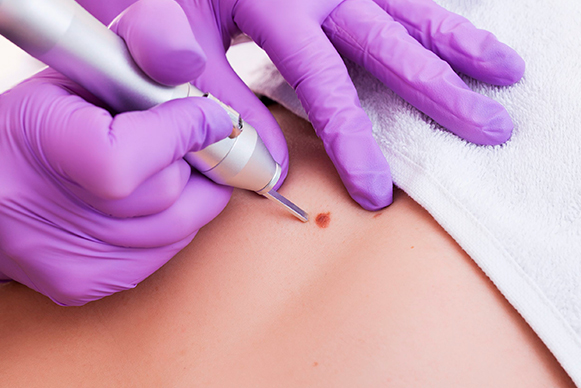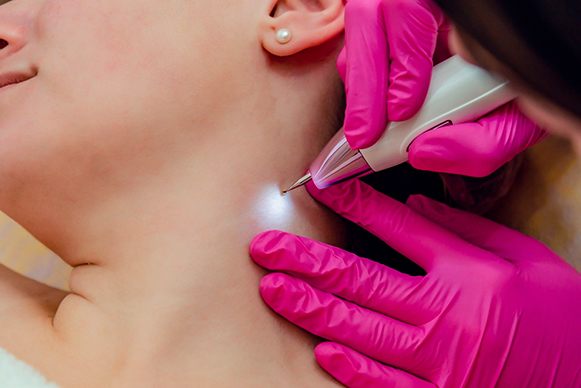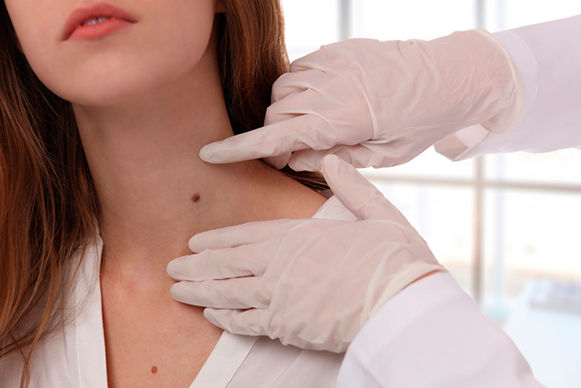Unit R-04, Marinascape Mall, Marina, Dubai, UAE
Unit R-04, Marinascape Mall, Marina, Dubai, UAE
Skin tags are small, benign growths that hang off the skin's surface. They are typically soft, flesh-colored or slightly darker, and have a stalk-like appearance. Skin tags are common and can occur on various parts of the body, such as the neck, armpits, groin, and eyelids. While they are harmless, they can be bothersome or cosmetically undesirable for some individuals.
The exact cause of skin tags is unknown, but certain factors can contribute to their development. Friction or rubbing of the skin against skin or clothing, hormonal changes during pregnancy or menopause, and obesity are believed to play a role. Additionally, genetic predisposition and insulin resistance have been associated with an increased likelihood of developing skin tags.

At drypSKin, we provide effective treatment options for skin tag removal. One common method is cryotherapy, which involves freezing the skin tag using liquid nitrogen, causing it to shrink and fall off. Another option is cauterization, where the skin tag is burned off using heat or an electrical current. Both procedures are quick, relatively painless, and require little to no downtime.

The removal of skin tags can provide several benefits. It eliminates the cosmetic concern of having visible growths on the skin, boosting self-confidence. Removing skin tags also prevents potential irritation or discomfort caused by friction, especially in areas prone to rubbing against clothing or jewelry.

Ideal candidates for skin tag removal are those who have bothersome or cosmetically undesirable skin tags. The procedure is safe for most individuals, but it is essential to consult with a healthcare professional to determine the best course of action and ensure any skin growth is properly evaluated.
No, skin tags are not contagious. They are benign growths and cannot be spread from person to person.
While it is possible for new skin tags to develop in other areas, those that have been successfully removed are unlikely to grow back in the same spot.
Skin tag removal procedures at drypSKin are typically well-tolerated and cause minimal discomfort. Local anesthesia may be used to numb the area during the procedure if necessary.
Healing time can vary depending on the size and location of the skin tag and the removal method used. In most cases, the area will heal within a week or two, and any minor scab or redness will fade over time. It's important to follow post-procedure care instructions provided by your healthcare professional.